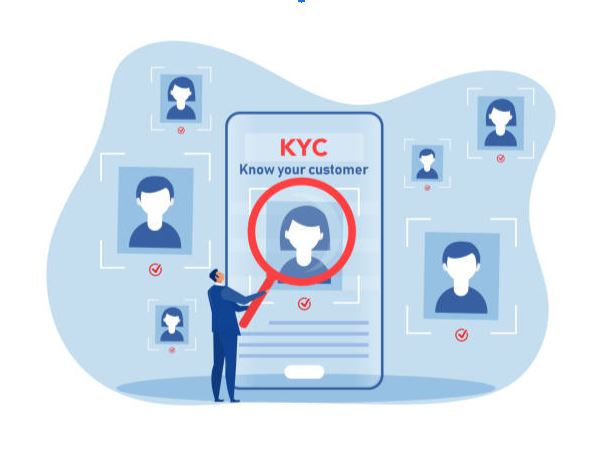The financial sector stores the personal commercial information of various account holders. It must comply with KYC regulations, which require precise validation of the customer’s documents before onboarding them into the company. The strategy behind the compliance is to mitigate the cybercrimes, which resulted in $2,159.4 million in financial losses in California alone. The financial sector must protect the customer’s confidential data from external threats by incorporating KYC document verification. KYC documents involve the authentication of customer’s documents to validate their identities. KYC solutions utilize artificial intelligence services that help validate the account holder’s identity accurately.
KYC Documents Verification – Safeguard the Financial Transactions
In financial institutions, KYC document verification is required to validate that the bank account holders are authentic entities. The KYC solutions require customers to prove their confidentiality by submitting their commercial documents. These documents are verified through digital document verification solutions. KYC-compliant optical character recognition can extract the customer’s information from paper files and convert it to digital formats. This way, the credentials are stored in the directories where advanced verification services can analyze the customer’s information.
KYC compliance shields financial information against account takeover attacks and can facilitate remote verification. The KYC documents are AML regulation compliant, ensuring financial institutions secure their assets from money laundering and other unauthorized attempts. KYC required documents to be verified through digital document verification tools, which prove to be cost-effective for most industries as they eliminate the need to visit distant organizations frequently for validation of their identities. The financial sector must authenticate their customer’s proof of address because it provides a clear image of their residential address, authenticating their legitimacy.
Document Verification Service – Reap the Benefits of Regulatory Compliance
The document verification services comply with the KYC rules and regulations. The KYC services protect businesses from financial crimes and prevent them from the consequences of non-compliance penalties. The financial sector provides monetary assistance to multiple businesses, so they must ensure that the partner company is legitimate and is not involved in risky activities. A key component of KYC solution is the risk assessment process, which can be done precisely through customer due diligence. This service verifies the company’s high authorities against internal sanction lists and uses advanced services to examine their risk profiles. This eliminates the presence of unauthorized customer’s access to financial bank accounts and assets.
KYC Documents Checklist – A 3-Step Initiative to Authenticate Customer Identity
The KYC document checklist provides a framework that allows the financial sector to verify their customer’s identity effectively. This checklist provides authentication solutions through 3 related steps, which are as follows:
- Customer Identification Programme: This is an essential KYC regulatory process where companies accumulate customer’s personal information during the registration process. The customer identification program verifies identities after collecting the customer’s identity card, passports, and proof of address. In accordance with these documents, additional documents are validated when companies decide to conduct business with other enterprises. This includes the business registration numbers and financial histories of the partner firm’s beneficial owners.
- Customer Due Diligence: Customer due diligence is a risk-based KYC process as it validates a customer’s financial activities against global watchlists, including politically exposed person lists and sanction screening. The strategy behind this service is to identify the customer’s risk profiles. After screening, if the customer possesses a risky financial history, they are validated again using enhanced due diligence. The enhanced due diligence process is designed to deal with high-profile customers as it uses an advanced authentication system to eliminate risky entities.
- Continuous Monitoring: After the customers are onboarded, they must still be monitored regularly to verify their transaction patterns and financial histories. This KYC protects customers from financial crimes, money laundering, and impersonation attacks.
KYC Onboarding Documents – Streamline Customer Registration Process
In the financial industry, the most important thing is to efficiently onboard new customers. Customer onboarding can take multiple business days, which sometimes becomes exhausting for the customers and the recruiters. KYC-compliant document verification services have streamlined this process by using advanced authentication services to onboard customers remotely. Financial institutions should educate their recruiters to help them utilize the verification service in order to provide fast verification for a smooth customer onboard experience. This promotes a satisfactory customer experience which increases their conversion rates. KYC services provide a thorough risk assessment, allowing companies to rule out high-profile customers. Online KYC document verification screens the illicit entities through high precision and accuracy.
Summing It Up
KYC documents verification provides security of financial assets from external identity theft risks. Compliance with the KYC regulations provides companies with a secure framework protecting customer’s identities from money laundering and related impersonation threats. The digital document verification services comply with the KYC rules, which validate commercial identities with high accuracy. The financial sector can seamlessly onboard new customers as KYC allows for smooth remote authentication, enhancing customers’ overall experience and increasing the financial sector’s conversion rates.

